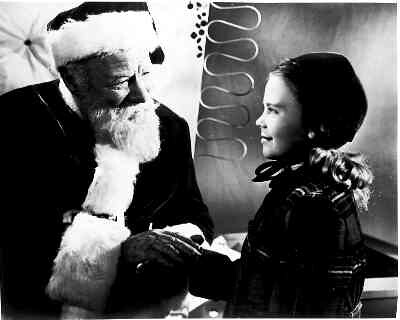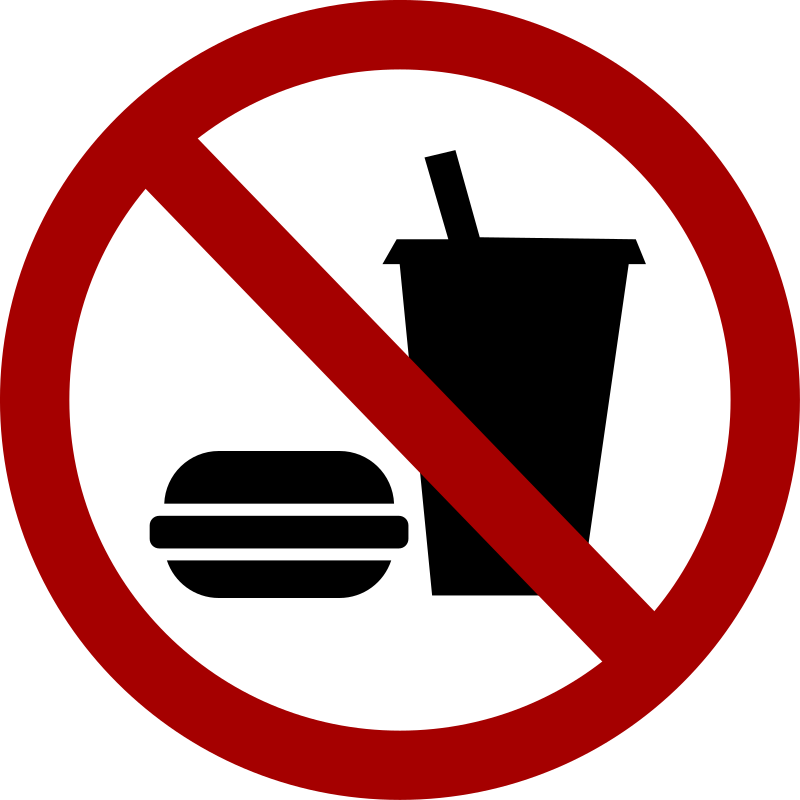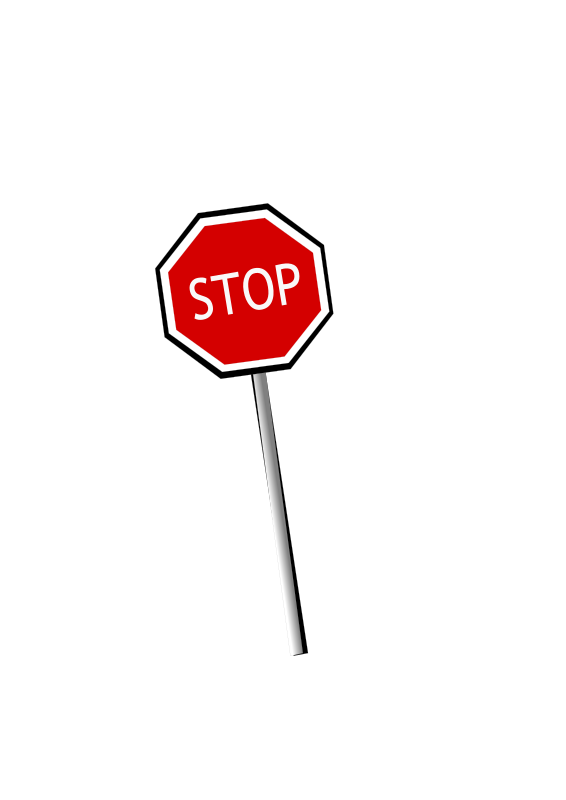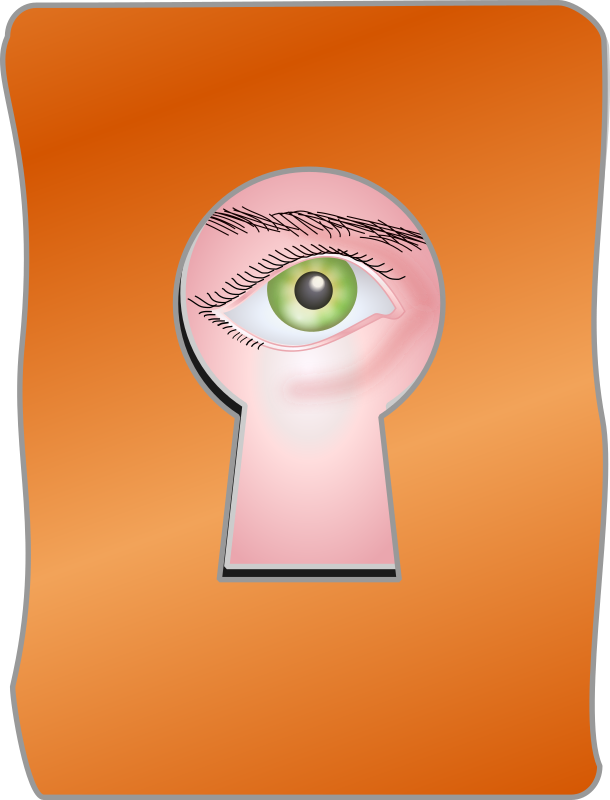I'm pleased to announce the title of my newest book, to be released in December. Song of the Sea is the first book in a brand-new trilogy called Saltwater Secrets. What's it about? Watch the trailer!
Justice (Deck of Lies, #1)
Get it everywhere online books are sold!
The Tower (Deck of Lies, #2)
Visit the Books page for free samples
Death (Deck of Lies, #3)
Get book downloads on the Free Stuff page
Judgment (Deck of Lies, #4)
Get the boxed set edition to get even more secrets!
Hope's Rebellion
Get it now!
Saltwater Secrets, Book 1: Song of the Sea
Take the plunge!
Saltwater Secrets, Book 2: Death and the Deep
NOW AVAILABLE!
Best of Books on Film: Miracle on 34th Street
The holiday season is a special
time of year, and plenty of writers have used that to their advantage.
Stories about Santa Claus, believing and the holiday spirit are always
going to be popular. But few are destined to gain the sort of love and
popularity enjoyed by Miracle on 34th Street, one of my all-time favorites. You've probably seen the movie, but what do you know about the book?
The Book
Valentine Davies wrote Miracle on 34th Street
in 1947, as a companion novelette for the film released the same year.
It was actually published by 20th Century Fox, who also made the film,
but it's managed to stand on its own and has sold millions of copies.
The book introduces readers to Doris Walker, a rather cold career woman
who works for Macy's. She's managing personnel for the famous Macy's
Thanksgiving Day Parade, and must fire the Santa Claus she's hired at
the last minute when he turns up drunk. She hires bystander Kris to take
his place, an elderly gentleman who looks the part. He's so good in the
parade that Toy Department head Mr. Shellhammer suggests that Kris play
the department store's in-house Santa for the duration of the holiday
season. Kris accepts the job and goes to work at Macy's, on 34th Street
in New York City.
Doris
has a daughter, 6-year-old Susan, who has been raised in a world
without fairy tales, dreams or fantasies. Doris doesn't believe in
illusions; apparently she already got her fill of them with her former
husband (Susan's father). Once the parade is over she goes to fetch
Susan from the apartment of Fred Gailey, a lawyer who lives in the same
building, and he manages to wrangle an invite to Thanksgiving dinner
with Susan's help. Gailey is single, Doris is pretty, and he's hoping
the dinner will only be the beginning.
The
dinner goes well, but Doris's next workday does not. It seems that Kris
thinks he actually is Santa Claus, like the real one, and this is cause
for concern. He is taken to Macy's company psychologist Albert Sawyer,
who takes an immediate dislike to Kris. Meanwhile, Kris has managed to
strike up a friendship with Fred Gailey, and together the two of them
plan to unthaw Doris and Susan. Gailey will work on opening Doris's icy
heart, and Kris will teach Susan how to be a child with an imagination
she's not afraid to use.
But
Sawyer proves to be a fly in the ointment. He manages to get Kris
committed to Bellevue, the famed insane asylum, without Doris's
knowledge. Gailey signs on as his lawyer in order to prove that he's
sane and get him out of the place.
Gailey
comes up with a truly unique defense. Instead of finding a way to prove
that the man who calls himself Kris Kringle is sane, he decides to
prove -- in a court of law, mind you -- that Kris actually is Santa Claus. And maybe he is. It's the holiday season, and anything's possible...as Susan will learn at the end of the story.
The Film
The
story beautifully comes to life on film, which makes since as the book
was created to complement the movie. Natalie Wood stars as the adorable
Susan, Maureen O'Hara is gorgeous as Doris, and Edmund Gwenn is Kris
Kringle/Santa Claus. He was so good in the role, young Wood actually
thought he was Santa, and the Academy agreed. He won an Oscar in the role.
The
movie opens with Kris window-shopping on Thanksgiving, where he
corrects a store clerk who has put the reindeer pulling Santa's sleigh
in the wrong positions. The audience is this taken into the bustling
middle of the parade, where Doris is putting out several different
fires. We know at once that she's a strong, capable career gal. We find
out soon that she's also a single mother who does her best to keep her
daughter firmly grounded in reality.
My
favorite scene occurs early in the film, when Gailey takes Susan to
Macy's to visit Santa. She matter-of-factly tells him that she doesn't
want anything for Christmas -- "whatever I need, my mother will buy me,
if it's sensible and doesn't cost too much." But when he speaks fluent
Dutch and sings a song with a little girl who believes he is Santa, even
Susan is touched. I just love it. Another great moment comes later in
the film, during the trial, which is filled with absolutely fabulous
moments. One of the best is when Gailey calls the prosecutor's own son
to the witness stand to testify that Santa does, indeed, exist --
"because my daddy told me so." I adore trial scenes, and the one in this
flick is worth watching again and again.
What Got Adapted?
Very
little changes from book to film in this one, for obvious reasons. As
the story goes, it was originally written around 1944. Davies later
adapted the work when Fox thought it would make a great screenplay, and
she worked on both the novel and the script with other Fox writers.
The
AFI ranks the original film in their Top Ten of classic American films,
and it's part of the National Film Registry. Several remakes of the
movie do exist, but the 1947 version is still the best by a country
mile. Now is the season to watch it, so go and watch it! This story is a
delight, both on the page and on the screen.
Best of Writing 101: My Unhealthy Relationship...with Writing About Food
I'm in a toxic relationship. It's
not easy to admit or to talk about, but there it is. I have such a bad
relationship that it seeps into everything I do...and almost everything I
write. And as a writer who's having this toxic relationship, it's
impossible for me to write about this relationship without giving
readers a skewed, distorted viewpoint. But I know that I can't fix this
toxic relationship...so I've found a way to make it work with my
writing. If you have a personal issue or some strange quirk, you can't
ignore it. You can't write around it. All you can do is embrace
it...just like I have.
The Girl with the Most Cake
Those of you who follow my colleague Annalisa Crawford
may be aware that I've been engaged in a battle with my toxic
relationship for years. I am winning, but not without casualties. My
toxic relationship is with food. We've been having a torrid love-hate
relationship since...well, perhaps since I was born. Me and food just
can't love each other the way we want to, and so we find ourselves
constantly at odds instead.
Best of Writing 101: Food in Books
Food and books go well together.
When you're nice and full from your Thanksgiving feast, there's nothing
as sweet as curling up with a good book. They seem to encourage
snacking, and sometimes a book is so good it's difficult to pull one's
eyes away to bother with looking at dinner. Why not cut right to it, and
add food directly into your books?
Even Characters Have to Eat
Everybody
eats. It's one of the universal truths that ties all human beings
together. I live in Kentucky, in the United States, and passionately
love books and basketball. But when it comes to food, I'm not so
different from the boy working on a farm that has no electricity in
Asia -- because I eat it, too. And that brings us right back to why you
want to add food to your books.
- Realism
Anything that makes your
characters feel more real to readers is a good thing, and there's
nothing like food to do that for you. Have your character eating pizza
with friends or stopping at the fast food burger joint; we've all done
that, so we can all relate. Use food to help me relate to your
characters, because it'll work.
- Descriptive writing
Food also allows you to be really descriptive, and that's exactly what you want your writing to be. Describe
the smell, the texture, the taste. Put me right there in that moment --
in that booth, eating pizza. Put me at the dinner table, cutting into
the steak.
- Introduce something new
Books allow readers to go to
new places, to meet new people...to try new things. Why can't one of
those things be food? It can be exciting to read about a food that I've
never tasted, to learn about some new dish. I read one book that
actually gave me a recipe, and I was delirious about it. I went
straight into the kitchen once I got to the end of the chapter, no
kidding. Use food to give your readers something new and different, and
it will make your writing more memorable and enjoyable.
Food and Books
Add
food to your books, and your readers will eat it up (pun intended). It
brings more flavor to the page, and your fans will end up being hungry
for more of your writing. I could do this all day, but now I'm the one
getting hungry. So think about ways to add more food to your writing
while you're eating today, and have a happy Thanksgiving!
Best of Writing 101: Writing 101: Writing About the Holidays
The holiday season makes people
feel excited for something, anxious and happy. It's a thrilling time,
and it's a time when everyone's wallet is a little more open than usual.
So writing about the holidays is tempting. After all, doesn't the
Hallmark channel need new movies about Christmas every single year?
Obviously holiday stories are in demand. So why shouldn't you write
about them?
Don't worry -- I'm going to tell you why.
My Thanksgiving with YouTube
Let
me start by telling you a story, since I am a storyteller. I was
planning a pretty big event about three years ago, and I was so into it I
was barely sleeping at night. So a few days before Thanksgiving, I
found myself cruising forums at 3am. It's not as bad as it sounds -- it
was a party-planning forum. And there was a link to a YouTube video, and
I'm a sucker for those.
It
ends up being a video diary of this Australian guy who was getting the
wrong email. Apparently, he had the same name as an American and he was
on the family mailing list in lieu of the correct person. This is how he
became aware of an intriguing discussion about Thanksgiving. He read
about deviled eggs, and turkey, and stuffing and gravy and all sorts of
different back-and-forth. It was fascinating stuff, so much so that he
launched a YouTube campaign in order to find this family.
Writing 101: Talking With Myself
How often do you speak your more intimate thoughts aloud to an empty room? Probably not often, but writers use this little trick all the time. And frankly, it's bad writing. Don't do this, I beg of you. Many people do not have conversations with themselves aloud, so I don't know why so many authors are making their characters do it.
Disclaimer
Don't get me wrong. I have talked to myself. Catch me in a store during the Christmas season, and you may even see me having a rather animated talk with myself. But rarely do I ever stand in the middle of a room and pour my heart out to the walls. When I'm talking to myself, it's much more "didn't I buy that last year?" and "Well, if I knew what her size was..." It's not "I always wanted Ronnie to love me. I don't understand why he doesn't. Maybe it's because I talk to myself so much." See the difference?
Writing 101: Knowing When to Stop
So, I got all excited about writing this particular story. It completely fired my imagination; I found myself shirking other responsibilities just so I could research. Who does that? Anyway, I was thrilled about it so I started writing it. But then, something just didn't feel right. I tried forcing more chapters, but it just didn't sit well with me. Eventually, I had to put the book aside...and ended up writing an entire other novel instead. Then, just the other day, all the answers came to me out of nowhere. Knowing when to stop is a big part of being an indie author.
Hitting the Brakes
Writing 101: What's Your Angle?
Please, take a moment to look at the image on this post. What do you see when you look at it? You may think you're seeing a box. You may take it one step beyond, and call it a moving box. It's the holiday season. Maybe it's a gift box. Maybe you're morose, and you see someone's home when you look at it. But I'm here to tell you that this is not a box. This is the box that was used to move the very first kidney used in the very first transplant in the country. And I want to tell you the story of that box.
When you're a writer, you have to know how to take a regular box and turn it into a story. But a regular story of an ordinary moving box isn't enough. I have a question to ask you: what's your angle?
Writing 101: What Other People Think
Remember when you were growing up and your parents or parental figures told you "just be yourself?" When you become an indie author, you've got to disregard all that advice. In a way, the author's career hinges upon the opinions of others.And that means the last thing you really want to do is be yourself. What other people think is very, very important...and it's going to be harder to face than you think.
What I Think...
What other people think of you as an author is important, and if you don't use a pen name then how you act in life becomes a part of the picture as well. I always advocate using pen names because it's the easiest way to keep your true self and your author persona separate. As an author, you can't get political or religious or express too many opinions. That might affect your readers. The exception is, of course, if you write political or religious books. But if you write ordinary genre fiction, you've got to keep it buttoned up during election season. It feels impossible. I know it's hard for me. But what other people think is always going to matter when you're an author. It matters even more when you're an indie.
Writing 101: You Don't Have to Go Home, But...
Every writer has to create a world for their books, even if their books are based in a real time and place. You still have to create that in the reader's mind out of nothing. You may have a reader who doesn't know what living on he beach is like, and that means you have to be the one to tell them. No matter what sort of setting you're creating, do yourself a huge favor. Base it on an actual place that you can find on a map.
Pick a Real Place for Your Setting, Or Else
No matter where your book is taking place, you must give your readers some frame of reference. If you can make me understand that snow is frozen water and it's capable of falling from the sky in soft, icy little pieces, you've done your job as a writer. But you can never make me understand what glub is when it gets on your hands unless you can compare it something I do understand. If you tell me that glub has a slimy texture, I'll get that. You have to do the same sort of thing with your setting. You've got to ground it in something I understand.
You've got to pick a real place, somewhere, and use this as your foundation.
Writing 101: Scene in Progress
Starting a scene when it's already in the middle of the action can be a good way to grab a reader's attention right away. Starting a book this way can be especially arresting. But at some point it goes from being attention-getting to being just plain jarring. No one likes feeling like they've showed up 10 minutes late, and all the really good stuff has already happened. When it comes to writing a scene in progress, a light touch is the best touch.
What Did I Miss?
Setting up scenes can begin to get a little tedious, from a writer's point of view. You've got to figure out where Sally has been and which door she's using. Why is T.J. in the room and what has he been doing? How does it all start, what makes it all exciting? And on and on...and on. When you begin the scene already in the middle of the action, you've cut right past all this nonsense. But how much of that setup does a reader really need to keep themselves anchored in the scene? That's what you've got to figure out.
Writing 101: What's on Your Gift List?
The holiday season is approaching quickly, and it's time to start thinking about gift-giving. So give yourself a few handy items this year to make it easier for you to write. It's time to make out your writing gift list.
Gifts for Writers
There are several items that will make writing easier and allow you to be more productive. Give yourself the gift of getting more done in the coming year.
- iPad shower curtain: This is a real thing, and it's totally cool. The shower curtain has a waterproof sleeve in it so you can still work while you're in the shower. Since I'm constantly looking for new ways to work, I think this thing is amazing.
- Writer's Market: You don't have to get it in print, but you do have to get it if you want to traditionally publish. The Writer's Market has information about agents and publishers that will help you take the traditional path.
- Cooling pad: Save your laptop some work by getting yourself a cooling pad. This nifty device is really just a fan that keeps your laptop cool. If you write for 12 hours straight and you don't stop to eat and you run a dozen different functions at once because you never know when you'll need Google Earth (like me), this thing will be worth its weight in gold.
- Keyboard cover: This thing is absolutely worth every single penny, and it will save your laptop's life. A keyboard cover is a simple plastic deal that fits right over the keys. I lost two N keys, an Enter and both Es before I figured this out. You can find keyboard covers that are custom-made to fit on specific laptops, so match your products up and it will be smooth sailing. FYI, covers don't last for ever. If you type for 12 to 14 hours a day every day, you'll go for a year or two before it has to be replaced.
Get yourself a small gift, and get more productive over the coming year. The more you're able to publish and build your brand, the better you're going to do as an indie author.
Writing 101: Pay Attention to Be a Better Writer
How carefully do you watch other people? How often do you try to figure out why they said something, or did something, that you didn't understand right away? I'm not talking about obsessive behavior. I'm talking about observation, the power of paying attention. And if you want to be a better writer, you should start doing it.
My Eyes on You
If you want to be a better writer, I have some easy advice: pay attention. Observe the people and the world around you, and then take that one step further. Don't just be a better writer. Become a great one.
Writing 101: The Stream of Consciousness
There are many different narrative styles out there, and writers use them in all kinds of ways. But one of the trickiest is the stream of consciousness. If you hear thoughts inside your head all day every day, you still might not be able to pull this off. But if you want to really challenge yourself and write something different and amazing, this can be a great way to do it.
Voices in My Head
The stream of consciousness style of writing is relatively new when compared to the rest of the world of literature. It was first applied to a novelist in 1918. In short, this writing technique is an inner monologue that never stops. It's the character's every thought. Sometimes, it even lacks punctuation. If that sounds really difficult to write, it's because it is.
Writing 101: How to Be a Better Writer
No one is a born writer, contrary to what they may say. No infant comes out of the womb with story ideas. You've never heard of a writing prodigy who was completing novels at age 6. It is a learnable skill, one that you can hone and sharpen. There are ways you can become a better writer. Start using them.
Practice Makes Perfect
Remember when you learned to drive a car? You were shaky and unsure of yourself behind the wheel the first time. But when the car didn't go careening into the river and kill you right away, your confidence began to grow. You started to feel a little more comfortable. Now, you're whipping in and out of parking spots, burning rubber all over the city and fixing your hair while you set the air conditioning. We at Jade's blog advocate safe driving at all times. Please stay responsible.
The point is, the more you drove the better you got at driving. Writing is like that, too.
Writing 101: Crazy Advice for Writers
In my frequent quest to discover new writing advice and various tips, I come across lots of bad ideas that just aren't going to work. Instead of laughing at them alone, I thought I'd share some of the craziest ones I've discovered recently. Just remember: don't follow this crazy advice for writers.
These Are Not My Tips
Remember, this is not my advice. These are crazy tips I've collected online that I'm convinced aren't going to work out well for anyone. I'll be explaining exactly why they won't.
Writing 101: It's Not About Money, But...
Somebody asked me about being a writer the other day, and I told them what I always tell everyone: I don't recommend it. The person replied that they know it's hard, but they don't expect to make any money from their writing anyway. It's a romantic notion, isn't it, to simply write for the love of writing? But long gone are the days when the noble artist could be sponsored by a wealthy patron, some sort of Duke or maybe even a King, and simply do their writing for the love of it. You can't eat words. So maybe it's not about the money, but it's still going to be about a whole lot of hard work. When you don't even get money for doing it, you're setting yourself up for a long, hard, uphill walk.
It's Not About the Money, Money, Money
If you're not into writing for the money, that's just swell. But you're going to have to be into something for the money, unless your last name is Vanderbilt and then this doesn't apply to you. But on the off chance that it's not and you're a pretty normal person, you're going to need some money. If you're not writing to get money then you're doing something else to get money and writing just for fun. And now, things are getting dicey.
Subscribe to:
Posts (Atom)































